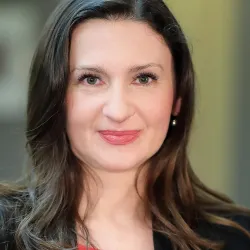Windsor Residential Training Series
Windsor Residential Training Series

Windsor Residential Training Series
Date: September 23 - 27th, 2024
Time: 9am-5pm
Location: The Royal Berkshire, Windsor, United Kingdom
Group discount: 4 people for the price of 3
Confirmed speakers include

Ann-Leena Mikiver
Head of Communications
Sveriges Riksbank
Ann-Leena Mikiver is Head of Communications at Sveriges riksbank, the Swedish central bank. She has led the Riksbank’s communications strategic and operative work since 2013, including media relations, digital channels, speech/strategy coordination and internal communication. She is a member of the Riksbank’s Management team and she is also leading the communications network in the group for private-public co-operation in the financial sector (FSPOS) in Sweden. Mikiver is also a member of the BIS Head of Communications group. Prior her career at the Riksbank she have had communication executive roles in banking, telecom and the pharmaceutical sector and prior this she was a journalist, mainly covering macro economics. Mikiver has a BSc in Social Sciences/Economics.

Gabriel Glöckler
Principal adviser communications
European Central Bank
Gabriel Glöckler is a seasoned central banker, economist and communicator. Since 1999, he has served the European Central Bank in a variety of senior roles. As Principal Adviser, he is currently part of the senior leadership of the Bank’s communications department, where he spearheads innovation to communicate ECB policy to the wider public more effectively. He is also a Chief Editor of the ECB blog. Prior to this, Gabriel led the ECB’s General Secretariat and its European Union department. He also spent five years as chief of staff to the ECB’s Vice-President and worked as an economist. Gabriel studied Philosophy, Politics and Economics at Oxford University and holds a Master’s degree from the College of Europe in Bruges, where he has also been a Visiting Professor for the last decade. He is a regular public speaker, including in the media. His academic work on European integration and central bank communication has been published widely.

Stefan Ingves
Former governor
Sveriges Riksbank
Stefan Ingves served as the governor of Sveriges Riksbank, from 2006 to 2022. He was chairman of the Basel Committee on Banking Supervision from 2011–19. Since November 2021, he has served as the vice-chairman of the Bank for International Settlements where he has chaired its Banking and Risk Management Committee since 2007. Ingves served as chairman of the Advisory Technical Committee of the European Systemic Risk Board between 2011 and 2017, and was first vice-chair of the ESRB from 2021. From 1999–2005, Ingves was director of the monetary and financial systems department at the International Monetary Fund and worked as deputy governor of the Riksbank from 1994–98, after a year working as director-general of the Swedish Bank Support Authority. From 1988–92, he was a member of the board of the Swedish National Debt Office, the Stockholm Stock Exchange and Värdepapperscentralen, as well as under-secretary for financial markets and institutions at the Swedish Ministry of Finance. Ingves has also worked in banking as assistant vice-president in the central finance and fund management division at Svenska Handelsbanken between 1984 and 1986, and was president of Sofe, Sweden’s Options and Futures Exchange in 1987. He has a PhD in economics and was a lecturer at the Stockholm School of Economics between 1976 and 1984.

Dale Alexander
Director, Stakeholder Relations Planning
Bank of Canada
Dale Alexander was appointed to the role of Director, Stakeholder Relations Planning, at the Bank of Canada in January 2022. Dale leads the strategy, planning and coordination of the Governing Council’s public speeches, outreach activities and consultations, as well as the implementation of stakeholder engagements on key Bank initiatives, such as retail payments supervision, Central Bank Digital Currency and Indigenous economic reconciliation. Dale has worked for the Bank for over 15 years in increasingly senior positions, including her time as the Senior Deputy Governor’s press secretary and team lead for corporate communications files. She has also worked as a communications strategist specializing in financial sector policy for the Department of Finance Canada. Dale holds a degree in English Literature from the University of Ottawa.

Marek Petruš
Central bank communications consultant and former director of the general secretariat
Former Czech National Bank
Marek Petruš is an external relations consultant with deep expertise in financial and economic policy communications. He has worked closely with top monetary policymakers as a strategic advisor to governors in the Czech Republic as well as more than a dozen low-to-middle income developing countries. He has been affiliated with the International Monetary Fund as a short-term expert for central bank communications, advising central banks across Eastern Europe, Asia, and Africa to make their policies more transparent and on modernising their communications. His expertise and experience stems from an assignment as Director of Communications and later chancellor at the Czech National Bank (CNB), preceded by a career with the world’s leading news media companies, including Reuters and the Wall Street Journal. During his tenure, the Czech central bank upgraded its policy communications and brought its transparency and communication toolkit into line with global best practices. These advances helped solidify the CNB’s standing as one of the world's most transparent and best communicating central banks.
Windsor - Monday September 23rd
15:00 – 22:00
Arrive at the venue
15:00 - 20:00
- Check-in at the Royal Berkshire Hotel, from 3:00pm
- Dinner will take place in the Marlborough suite, on-site at the hotel, at 7:00pm
Winsdor - Tuesday September 24th
Strategic communication excellence: Building trust, engaging audiences, and enhancing influence
09:00 – 09:45
Chair introduction and ice breaker
09:00 - 09:45
- Introduction and welcome from the chairperson.
- Overview of the agenda and featured speakers.
- Exploration of participant expectations and key areas of interest.
Marek Petruš
Central bank communications consultant and former director of the general secretariat
Former Czech National Bank
Marek Petruš is an external relations consultant with deep expertise in financial and economic policy communications. He has worked closely with top monetary policymakers as a strategic advisor to governors in the Czech Republic as well as more than a dozen low-to-middle income developing countries. He has been affiliated with the International Monetary Fund as a short-term expert for central bank communications, advising central banks across Eastern Europe, Asia, and Africa to make their policies more transparent and on modernising their communications. His expertise and experience stems from an assignment as Director of Communications and later chancellor at the Czech National Bank (CNB), preceded by a career with the world’s leading news media companies, including Reuters and the Wall Street Journal. During his tenure, the Czech central bank upgraded its policy communications and brought its transparency and communication toolkit into line with global best practices. These advances helped solidify the CNB’s standing as one of the world's most transparent and best communicating central banks.
09:45 – 10:45
Evolving dynamics: internal communications, team management, and inclusive language
09:45 - 10:45
- Explore the inner workings of Sveriges Riksbank's communication team and its role in supporting the central bank's objectives.
- Dive into the importance of inclusive language in internal communications, examining its evolution and impact on team dynamics.
Ann-Leena Mikiver is Head of Communications at Sveriges riksbank, the Swedish central bank. She has led the Riksbank’s communications strategic and operative work since 2013, including media relations, digital channels, speech/strategy coordination and internal communication. She is a member of the Riksbank’s Management team and she is also leading the communications network in the group for private-public co-operation in the financial sector (FSPOS) in Sweden. Mikiver is also a member of the BIS Head of Communications group. Prior her career at the Riksbank she have had communication executive roles in banking, telecom and the pharmaceutical sector and prior this she was a journalist, mainly covering macro economics. Mikiver has a BSc in Social Sciences/Economics.
10:45 – 11:15
Networking break
15:30 - 16:00
11:15 – 12:15
Chair Workshop - Storytelling for central banks in the digital era: navigating AI and social media challenges
11:15 - 12:15
- Interactive Group Discussion:
- Automating routine tasks in press release dissemination.
- Potential risks and ethical considerations.
- Practical Exercises:
- Crafting narratives based on real-world examples: drafting mock press releases for policy announcements; critiquing and refining press releases for different scenarios.
- Peer review and feedback on narrative development.
- Brainstorming ideas and sharing insights and lessons learned.
Marek Petruš
Central bank communications consultant and former director of the general secretariat
Former Czech National Bank
Marek Petruš is an external relations consultant with deep expertise in financial and economic policy communications. He has worked closely with top monetary policymakers as a strategic advisor to governors in the Czech Republic as well as more than a dozen low-to-middle income developing countries. He has been affiliated with the International Monetary Fund as a short-term expert for central bank communications, advising central banks across Eastern Europe, Asia, and Africa to make their policies more transparent and on modernising their communications. His expertise and experience stems from an assignment as Director of Communications and later chancellor at the Czech National Bank (CNB), preceded by a career with the world’s leading news media companies, including Reuters and the Wall Street Journal. During his tenure, the Czech central bank upgraded its policy communications and brought its transparency and communication toolkit into line with global best practices. These advances helped solidify the CNB’s standing as one of the world's most transparent and best communicating central banks.
12:15 – 13:15
Lunch break, and networking
12:45 - 13:30
13:15 – 14:15
Navigating change: modernising central bank communication and managing change
13:15 - 14:15
- Explore strategies for modernising communication practices within central banks to meet the needs of diverse audiences.
- Learn how embedded communications can elevate your role within the organisation, ensuring your team has a seat at the table and pushes boundaries.
- Understand the importance of fairness and transparency in enhancing the reputation of central banks and fostering trust among stakeholders.
- Delve into effective change management strategies and communication techniques to successfully navigate organisational change.
Gabriel Glöckler is a seasoned central banker, economist and communicator. Since 1999, he has served the European Central Bank in a variety of senior roles. As Principal Adviser, he is currently part of the senior leadership of the Bank’s communications department, where he spearheads innovation to communicate ECB policy to the wider public more effectively. He is also a Chief Editor of the ECB blog. Prior to this, Gabriel led the ECB’s General Secretariat and its European Union department. He also spent five years as chief of staff to the ECB’s Vice-President and worked as an economist. Gabriel studied Philosophy, Politics and Economics at Oxford University and holds a Master’s degree from the College of Europe in Bruges, where he has also been a Visiting Professor for the last decade. He is a regular public speaker, including in the media. His academic work on European integration and central bank communication has been published widely.
14:15 – 15:15
Strengthening trust and community engagement: advancements in public outreach
14:15 - 15:15
- Examine the shift from desk-based communication to active, face-to-face interactions, prioritizing direct engagement to foster trust and credibility amidst economic uncertainties.
- Discover cutting-edge approaches to community outreach, including Bank-wide collaboration across various departments, aimed at significantly amplifying public engagement efforts compared to previous years.
- Address the challenges of building trust with diverse audiences and increasing the relatability of the Governing Council when engaging with established business figures as well as communities unfamiliar with central banking concepts.
- Explore strategies to inspire and motivate individuals towards a deeper understanding of central banking and its impact on their lives, encouraging active participation and involvement from the community, and the formation of dynamic "tiger teams" within the Communications Department to respond more rapidly to public discourse.
Dale Alexander was appointed to the role of Director, Stakeholder Relations Planning, at the Bank of Canada in January 2022. Dale leads the strategy, planning and coordination of the Governing Council’s public speeches, outreach activities and consultations, as well as the implementation of stakeholder engagements on key Bank initiatives, such as retail payments supervision, Central Bank Digital Currency and Indigenous economic reconciliation. Dale has worked for the Bank for over 15 years in increasingly senior positions, including her time as the Senior Deputy Governor’s press secretary and team lead for corporate communications files. She has also worked as a communications strategist specializing in financial sector policy for the Department of Finance Canada. Dale holds a degree in English Literature from the University of Ottawa.
15:15 – 15:45
Networking break
15:30 - 16:00
15:45 – 17:00
Closing remarks and delegate action plans
15:45 - 17:00
- Summary of the course
- Discussion of key takeaways
- Application of learning points in the delegates’ home organisations
- Preparation of action points
Marek Petruš
Central bank communications consultant and former director of the general secretariat
Former Czech National Bank
Marek Petruš is an external relations consultant with deep expertise in financial and economic policy communications. He has worked closely with top monetary policymakers as a strategic advisor to governors in the Czech Republic as well as more than a dozen low-to-middle income developing countries. He has been affiliated with the International Monetary Fund as a short-term expert for central bank communications, advising central banks across Eastern Europe, Asia, and Africa to make their policies more transparent and on modernising their communications. His expertise and experience stems from an assignment as Director of Communications and later chancellor at the Czech National Bank (CNB), preceded by a career with the world’s leading news media companies, including Reuters and the Wall Street Journal. During his tenure, the Czech central bank upgraded its policy communications and brought its transparency and communication toolkit into line with global best practices. These advances helped solidify the CNB’s standing as one of the world's most transparent and best communicating central banks.
Strategic fintech: Balancing innovation risks, navigating generative AI, enhancing system efficiency, and cultivating inclusive ecosystems
09:00 – 09:45
Chair's introduction and ice breaker
09:00 - 09:45
- Introduction and welcome from the chairperson.
- Overview of the agenda and featured speakers.
- Exploration of participant expectations and key areas of interest.
Stephen Mwaura
Chairman, Fintech Institute & former head of national payments systems
Former Central Bank of Kenya
Stephen is an international consultant with broad expertise for over 25 years in digital financial services, payment systems, central banking practices and legal and regulatory frameworks. Prior to working as an International consultant, Stephen was in charge of the National Payments System division at the Central Bank of Kenya, where he championed financial inclusion initiatives in Kenya- key among them was the globally recognised M-Pesa platform run by Safaricom which currently has 27 million subscribers, equivalent to a penetration rate of 75% in mobile money sector.
Stephen has considerable experience working with a wide range of stakeholders in the digital financial world (Telecommunication firms, Banks, donor organisations, Treasury, other regulators). At a regional level, he has extended his leadership expertise in the harmonisation of various initiatives at an East Africa Community (EAC) level. At an international level, he is a regular contributor and an acclaimed global speaker at both International Telecommunications Union (ITU) and Alliance for Financial Inclusion (AFI) fora. In addition, he has excellent research capabilities and is frequently requested to carry out peer review assignments and book reviews for colleagues in the industry
09:45 – 10:45
Unlocking efficiency with ALYA: leveraging advanced AI in the bank of Portugal's operations
09:45 - 10:45
- Explore ALYA's cutting-edge AI capabilities in machine learning and deep learning
- Discover how ALYA automates tasks across various business areas, from credit agreement monitoring to market sentiment analysis
- Delve into ALYA's creation, including the establishment of a data science academy and formation of a dedicated AI team
- Emphasise the importance of data integrity and secure foundations for successful AI implementation
Luís Marcos is Head of Advanced Analytics and Artificial Intelligence Unit within the Information Systems and Technology Department at Banco de Portugal, where he acts as a catalyst for innovation, transforming complex data into actionable insights that drive organizational success. He is instrumental in cultivating a data-driven culture, leveraging advanced analytics to unlock new opportunities and enhance operational efficiency.
Prior to this role, he managed project teams from strategic planning through execution and delivery of data projects, initially focusing on Business Intelligence before transitioning to Artificial Intelligence.
Beginning his career as a consultant in the financial services and telecom industries, he developed a strong foundation in data analysis and client management, which he now applies to his strategic and leadership roles.
Ricardo Carvalho is an Artificial Intelligence Engineer and Project Manager in the Information Systems and Technology Department at Banco de Portugal, a position he has held since 2021. His career in the field began in 2014, initially focusing on data projects and gaining valuable experience working on Business Intelligence initiatives.
Since 2021, Ricardo has been leading artificial intelligence projects, combining his expertise in project management with his technical skills in AI engineering. One of his most notable achievements is the development of the ALYA project, which was honored with the Portugal Digital Awards 2023 for the best digital transformation project in the public administration sector ("Best Government Project"). In this project, Ricardo not only managed the overall project but also led the technical team, ensuring the design and integration of AI solutions within the organization's architecture and facilitating their adoption across the business.
10:45 – 11:15
Networking break
15:15 - 15:45
11:15 – 12:15
Chair workshop: Fintech’s growing role in increasing efficiency in financial systems
11:15 - 12:15
- Bridging the gap for financial inclusion
- Operational efficiencies for technology, and unintended consequences
- Harnessing digital transformation for sustainable development goals
Stephen Mwaura
Chairman, Fintech Institute & former head of national payments systems
Former Central Bank of Kenya
Stephen is an international consultant with broad expertise for over 25 years in digital financial services, payment systems, central banking practices and legal and regulatory frameworks. Prior to working as an International consultant, Stephen was in charge of the National Payments System division at the Central Bank of Kenya, where he championed financial inclusion initiatives in Kenya- key among them was the globally recognised M-Pesa platform run by Safaricom which currently has 27 million subscribers, equivalent to a penetration rate of 75% in mobile money sector.
Stephen has considerable experience working with a wide range of stakeholders in the digital financial world (Telecommunication firms, Banks, donor organisations, Treasury, other regulators). At a regional level, he has extended his leadership expertise in the harmonisation of various initiatives at an East Africa Community (EAC) level. At an international level, he is a regular contributor and an acclaimed global speaker at both International Telecommunications Union (ITU) and Alliance for Financial Inclusion (AFI) fora. In addition, he has excellent research capabilities and is frequently requested to carry out peer review assignments and book reviews for colleagues in the industry
12:15 – 13:15
Lunch break, and networking
13:00 - 14:00
13:15 – 14:15
Compliance 2.0: the next phase of regtech evolution
13:15 - 14:15
- Disruptive new players and services
- Technology driven changes to oversight
- Evolving regulatory approaches
- Global impacts and challenges
- Looking ahead: the potential future impact on financial services, regulations, and oversight frameworks
- Supervising fintech firms - what if companies like Facebook start offering payments?
Kalliopi Letsiou is a Researcher at the Cambridge SupTech Lab of the University of Cambridge, with a rich blend of academic, legal, and compliance expertise, particularly in the realms of financial regulation, AML/CTF compliance, and AI governance. With a PhD nearing completion in the areas of Suptech and Financial Regulation, Kalliopi has specialised in advanced technologies for supervisory purposes, contributing valuable insights into regulatory challenges, such as data quality, and policy recommendations. Before joining academia and the Cambridge SupTech Lab, Kalliopi worked as an AML Compliance Specialist in international organisations and consulting companies where she gained exposure to the implementation of AML strategies with the use of advanced technology tools. Kalliopi also serves as a Lecturer at Brunel University London.
14:15 – 15:15
Regulating innovation: The FCA's role in shaping fintech's future
14:15 - 15:15
- An overview of how the FCA safeguards consumers from potential risks through clear regulations
- Discuss the FCA's regulatory sandbox and interaction with fintech start ups
- Evaluate the ongoing regulation of recent finance innovations like AI and cryptocurrency
Simone is the manager of the Global Innovation team at the FCA Innovation department, where he leads on several domestic and international strategic initiatives such as the Global Financial Innovation Network and multiple Open Finance projects. With a background on policy and innovation spanning different sectors and countries, he joined the FCA Innovation department in 2019 and has led many flagship initiatives such as the first survey of the application of AI in UK financial services, the establishment of the AI Public Private Forum, the pioneering cross border testing leveraging regulatory sandboxes.
15:15 – 15:45
Networking break
15:15 - 15:45
15:45 – 15:00
Workshop and closing remarks
15:45 - 17:00
- Workshop - Exploring emerging innovations
- Summary of key insights from the day
- Reflection on participation engagement
Stephen Mwaura
Chairman, Fintech Institute & former head of national payments systems
Former Central Bank of Kenya
Stephen is an international consultant with broad expertise for over 25 years in digital financial services, payment systems, central banking practices and legal and regulatory frameworks. Prior to working as an International consultant, Stephen was in charge of the National Payments System division at the Central Bank of Kenya, where he championed financial inclusion initiatives in Kenya- key among them was the globally recognised M-Pesa platform run by Safaricom which currently has 27 million subscribers, equivalent to a penetration rate of 75% in mobile money sector.
Stephen has considerable experience working with a wide range of stakeholders in the digital financial world (Telecommunication firms, Banks, donor organisations, Treasury, other regulators). At a regional level, he has extended his leadership expertise in the harmonisation of various initiatives at an East Africa Community (EAC) level. At an international level, he is a regular contributor and an acclaimed global speaker at both International Telecommunications Union (ITU) and Alliance for Financial Inclusion (AFI) fora. In addition, he has excellent research capabilities and is frequently requested to carry out peer review assignments and book reviews for colleagues in the industry
Windsor - Wednesday September 25th
Advanced cybersecurity strategies: Navigating vulnerabilities, artificial intelligence challenges, and testing excellence
09:00 – 09:15
Chair introduction and ice breaker
09:00 - 09:15
- Introduction and welcome from the chairperson.
- Overview of the agenda and featured speakers.
- Exploration of participant expectations and key areas of interest
Raymond Kleijmeer works at APG Asset Management on the implementation of the Digital Operational Resilience Act. Until May 2024 he worked at De Nederlandsche Bank (DNB), the central bank and financial prudential supervisor of the Netherlands. DNB seeks to safeguard financial stability and enhance the resiliency of financial institutions and the financial system as a whole. Raymond was involved in international working groups hosted by the Bank for International Settlements (BIS) publishing among others, the CPMI-IOSCO guidance on cyber resilience for financial market infrastructures in June 2016 and the Financial Stability Board Cyber Incident Response and Recovery toolkit published in 2020. At a national level he worked on the initiation and implementation of the Threat Intelligence Based Ethical Red teaming (TIBER) framework in the Netherlands from 2015 until 2019, when he was seconded to the BIS Financial Stability Institute to publish an FSI Insight on international red team testing frameworks. At the BIS Cyber Resilience Coordination Centre Raymond was seconded from 2020-2022 to establish a program for central banks to perform cyber resilience assessments on critical business services with methodology developed by Carnegie Mellon University.
09:15 – 10:00
Strengthening ecosystem and critical infrastructure through collaborative stakeholder engagement
09:15 - 10:00
- Understanding how interconnected ecosystem entities can collectively endure and rebound from cyber threats.
- Analysing the intricate connections within an ecosystem and stressing the significance of thorough risk assessments to pinpoint vulnerabilities, assess potential impacts, and highlight critical dependencies.
- Implementing efficient approaches and top-notch methodologies to bolster ecosystem resilience, including promoting collaboration and information exchange, deploying robust incident response protocols, conducting routine audits and evaluations, and devising contingency strategies to mitigate potential disruptions.
Brian Gattoni is an Assistant Director in the Federal Reserve Board’s division of Reserve Bank Operations and Payment Systems with responsibilities to ensure the cybersecurity and resilience of Federal Reserve System Information Technology supporting Federal Reserve banks and payment systems. Gattoni is building partnerships and processes that ensure cybersecurity and resilience decisions are risk informed, mission focused, and account for the latest developments in threats and technology.
Prior to joining the Board in January of 2023, Gattoni was the Chief Technology Officer for the Cybersecurity and Infrastructure Security Agency (CISA), where he was responsible for the technical vision and strategic alignment of CISA data and mission services to manage cyber and physical risk to federal networks and critical infrastructure. He led a portfolio of research and development efforts in bringing emerging technologies to use in CISA’s mission including Artificial Intelligence, Zero-Trust, Cyber Deception, Digital Twins, Counter Explosives Robotics and Automated Decision Support systems. Gattoni is a Board Member for the National Institute for Standards and Technology Information Security and Privacy Advisory Board.
Gattoni holds a Master of Science in Cyber Systems and Operations with certifications in Cyber Wargaming and Cyber Operations Infrastructure from the Naval Postgraduate School in Monterey, California, and is a Certified Information Systems Security Professional.
10:00 – 10:30
Cyber resilience in practice: a practical guide on how to use NIST Cybersecurity Framework 2.0
10:00 - 10:30
- Introduction of major changes CSF 2.0 vs CSF 1.1 and overview of the framework
- Stakeholders’ involvement: Explore how to leverage target and community profiles for resilience.
- Example: Addressing the increasing risks of ransomware in the financial system.
Brian Gattoni is an Assistant Director in the Federal Reserve Board’s division of Reserve Bank Operations and Payment Systems with responsibilities to ensure the cybersecurity and resilience of Federal Reserve System Information Technology supporting Federal Reserve banks and payment systems. Gattoni is building partnerships and processes that ensure cybersecurity and resilience decisions are risk informed, mission focused, and account for the latest developments in threats and technology.
Prior to joining the Board in January of 2023, Gattoni was the Chief Technology Officer for the Cybersecurity and Infrastructure Security Agency (CISA), where he was responsible for the technical vision and strategic alignment of CISA data and mission services to manage cyber and physical risk to federal networks and critical infrastructure. He led a portfolio of research and development efforts in bringing emerging technologies to use in CISA’s mission including Artificial Intelligence, Zero-Trust, Cyber Deception, Digital Twins, Counter Explosives Robotics and Automated Decision Support systems. Gattoni is a Board Member for the National Institute for Standards and Technology Information Security and Privacy Advisory Board.
Gattoni holds a Master of Science in Cyber Systems and Operations with certifications in Cyber Wargaming and Cyber Operations Infrastructure from the Naval Postgraduate School in Monterey, California, and is a Certified Information Systems Security Professional.
10:30 – 11:00
Networking break
15:30 - 16:00
11:00 – 11:45
Advance of AI and it’s implications on cyber security. Hand on look at offensive and defensive cyber operations using AI
13:15 - 14:15
- Overview of various AI technologies in the market today
- Breakdown of AI models and their capabilities
- Demo – Offensive cyber operations using ChatGPT
- Demo – Defensive cyber operations using ChatGPT
- Risks and future outlook
Mr. Sukhvir Notra is a Senior Information Security Specialist at the Bank for International Settlements (BIS). He has been an information security professional for over 10 years with majority of his career focused on defensive cyber operations. At the Cyber Resilience Coordination Centre (BIS), Sukhvir is responsible for development and delivery of cyber range exercises, managing cyber resilience assessments of central banks and other projects aimed at strengthening cyber resilience and promoting collaboration in the central bank community. His primary interest include leadership, operations, information security readiness and risk management. He has a Bachelors of Electrical Engineering degree and a Masters of Cyber Security from University of New South Wales.
11:45 – 12:15
Interactive workshop: Navigating ecosystem resilience challenges: strategies for overcoming dilemmas
11:45 - 12:15
Raymond Kleijmeer works at APG Asset Management on the implementation of the Digital Operational Resilience Act. Until May 2024 he worked at De Nederlandsche Bank (DNB), the central bank and financial prudential supervisor of the Netherlands. DNB seeks to safeguard financial stability and enhance the resiliency of financial institutions and the financial system as a whole. Raymond was involved in international working groups hosted by the Bank for International Settlements (BIS) publishing among others, the CPMI-IOSCO guidance on cyber resilience for financial market infrastructures in June 2016 and the Financial Stability Board Cyber Incident Response and Recovery toolkit published in 2020. At a national level he worked on the initiation and implementation of the Threat Intelligence Based Ethical Red teaming (TIBER) framework in the Netherlands from 2015 until 2019, when he was seconded to the BIS Financial Stability Institute to publish an FSI Insight on international red team testing frameworks. At the BIS Cyber Resilience Coordination Centre Raymond was seconded from 2020-2022 to establish a program for central banks to perform cyber resilience assessments on critical business services with methodology developed by Carnegie Mellon University.
12:15 – 13:15
Lunch break and networking
12:15 - 13:15
13:15 – 14:45
Navigating third-party risk: managing new technology developments and multi-stakeholder dynamics
11:00 - 11:45
Brian Gattoni is an Assistant Director in the Federal Reserve Board’s division of Reserve Bank Operations and Payment Systems with responsibilities to ensure the cybersecurity and resilience of Federal Reserve System Information Technology supporting Federal Reserve banks and payment systems. Gattoni is building partnerships and processes that ensure cybersecurity and resilience decisions are risk informed, mission focused, and account for the latest developments in threats and technology.
Prior to joining the Board in January of 2023, Gattoni was the Chief Technology Officer for the Cybersecurity and Infrastructure Security Agency (CISA), where he was responsible for the technical vision and strategic alignment of CISA data and mission services to manage cyber and physical risk to federal networks and critical infrastructure. He led a portfolio of research and development efforts in bringing emerging technologies to use in CISA’s mission including Artificial Intelligence, Zero-Trust, Cyber Deception, Digital Twins, Counter Explosives Robotics and Automated Decision Support systems. Gattoni is a Board Member for the National Institute for Standards and Technology Information Security and Privacy Advisory Board.
Gattoni holds a Master of Science in Cyber Systems and Operations with certifications in Cyber Wargaming and Cyber Operations Infrastructure from the Naval Postgraduate School in Monterey, California, and is a Certified Information Systems Security Professional.
14:15 – 15:00
Unlocking Digital Operational Resilience in Europe – understanding DORA’s implementation and challenges
14:15 - 15:00
- Examining the importance of digital operational resilience in safeguarding the continuous operation of essential financial infrastructure and services across Europe.
- Investigating the regulatory landscape and guidelines governing digital operational resilience in Europe, such as the EU Digital Operational Resilience Act (DORA), alongside other pertinent regulations and standards.
- Identifying the fundamental elements comprising digital operational resilience and their significance in ensuring robust and uninterrupted digital operations.
Simon Onyons brings over two decades of information technology and cybersecurity experience, most recently in the area of finance regulation. He currently serves as a senior advisor to the UK National Cyber Security Centre (NCSC), where he works on the NCSC Advisory Group to support the NCSC Industry 100 initiative to improve cyber resilience across UK industry and will remain in this role while at FTI Consulting.
Prior to FTI Consulting, Mr. Onyons was a Senior Vice President and Head of EMEA Governance, Risk and Compliance within Global Information Security at Bank of America. While at Bank of America, he created and co-led the award-winning Financial Sector Cyber Collaboration Centre (FSCCC) and served as Chair of the Cyber Security Working Group of the Association for Financial Markets in Europe.
Before that, Mr. Onyons worked in cybersecurity at the Financial Conduct Authority (FCA), where he was tasked with defining and implementing the strategy, policy, and structure of the FCA’s cyber supervisory division. Whilst at the FCA, he worked across a range of international working groups and collaboration efforts with global regulators and co-authored best practice cyber resilience guidance for the G7 Cyber Experts Group, the Committee on Payments and Market Infrastructures (CPMI), and the International Organization of Securities Commissions (IOSCO).
Previously, Mr. Onyons worked in business continuity and recovery for a number of IT service providers after beginning his career at IBM.
15:00 – 15:30
Networking break
15:30 - 16:00
15:30 – 16:45
Third party risk management and incident response in the new DORA landscape
15:30 - 16:45
Simon Onyons brings over two decades of information technology and cybersecurity experience, most recently in the area of finance regulation. He currently serves as a senior advisor to the UK National Cyber Security Centre (NCSC), where he works on the NCSC Advisory Group to support the NCSC Industry 100 initiative to improve cyber resilience across UK industry and will remain in this role while at FTI Consulting.
Prior to FTI Consulting, Mr. Onyons was a Senior Vice President and Head of EMEA Governance, Risk and Compliance within Global Information Security at Bank of America. While at Bank of America, he created and co-led the award-winning Financial Sector Cyber Collaboration Centre (FSCCC) and served as Chair of the Cyber Security Working Group of the Association for Financial Markets in Europe.
Before that, Mr. Onyons worked in cybersecurity at the Financial Conduct Authority (FCA), where he was tasked with defining and implementing the strategy, policy, and structure of the FCA’s cyber supervisory division. Whilst at the FCA, he worked across a range of international working groups and collaboration efforts with global regulators and co-authored best practice cyber resilience guidance for the G7 Cyber Experts Group, the Committee on Payments and Market Infrastructures (CPMI), and the International Organization of Securities Commissions (IOSCO).
Previously, Mr. Onyons worked in business continuity and recovery for a number of IT service providers after beginning his career at IBM.
16:45 – 17:00
Chair's closing remarks
16:00 - 16:30
- Summary of key insights
- Reflection on participation engagement
- Looking to the future
Arvinder Bharath brings to bear a blend of experience spanning over 30 years in technology, banking, and policy setting. She started her career in technology working with corporates, conglomerates and tech and telecom giants such as British Telecom, Nortel Systems, Cisco, Compaq and Hewlett Packard. She later joined Barclays Bank where she held senior positions in technology, mergers, acquisitions, and separations across the globe. She then returned to the Caribbean to lead RBC Royal Bank as president and country head for Trinidad and Tobago. Arvinder subsequently moved to the Central Bank of Trinidad and Tobago as Deputy Inspector of Financial Institutions, transitioning to lead Financial Technology, Information Security and Knowledge and Information departments. She is currently a Digital Risks Expert with the IMF where she provides technical assistance to member countries in management of digital and cyber risks arising from digitalization of the financial services sector, public financial management and adoption of digital currencies. She is involved in various international working groups and forums on transformative technologies such as Quantum Computing, generative AI, DeFi and others.
Arvinder holds a BSc Hons in Information Technology and an MBA in Banking – both from the University of London.
Navigating cultural harmony in governance: balancing shifts and fostering leadership amid geopolitical uncertainty, financial instability and contemporary challenges
09:00 – 09:45
Chair's introduction and ice breaker
09:00 - 09:45
- Introduction and welcome from the chairperson.
- Overview of the agenda and featured speakers.
- Exploration of participant expectations and key areas of interest.
Born 1953, Mr. Grønn holds a graduate degree in economics (cand.oecon. 1979) from the University of Oslo. Work experience since 1980 includes vfarious positions at Norges Bank, including Director of International Department, Director of Statistics Department, and Special Advisor to the Governor. Mr. Grønn spent altogether eight years at IMF’s Executive Board in Washington DC, as Senior Advisor (1989-1992), Alternate Executive Director (2011-2013) and Executive Director (2013-2016), as well as one year at the ECB in Frankfurt as national central bank expert, monetary policy (2005-2006). He retired from his position at Norges Bank in July 2021, and continued as a consultant at the Bank on a part-time basis until December 2023.
09:45 – 10:45
Strategic governance in central banking: enhancing future-readiness
09:45 - 10:45
- Understand the importance of integrating strategic foresight into governance frameworks to anticipate and manage future challenges effectively
- Explore how governance structures can support a proactive, rather than reactive, approach to emerging trends and uncertainties
- Learn strategies to reinforce systems that can adapt to rapid changes in the economic, geopolitical and technical landscapes.
Paul is the Head of Function for Strategy & Foresight at the Central Bank of Ireland, where he established and leads the foresight capability. Previously, he was Head of Function for Organisational Risk, overseeing both financial and operational risk management. Since joining the Central Bank in 2011, Paul initially worked on the Financial Measures Programme, a key part of Ireland’s commitment to the Troika (IMF, ECB, and European Commission) following the Global Financial Crisis. Paul has also collaborated with the IMF to provide technical assistance on governance, strategy, and risk management to central banks globally. Before transitioning to the central banking sector, he spent over a decade in the software and telecommunications industries, holding senior leadership roles in both corporate and start-up environments. He holds master’s degree in business, economics (regulation), finance, and computer science (distributed systems). Additionally, Paul is an alumnus of Harvard Business School, where he completed the General Management Program.
10:45 – 11:15
Networking break
15:30 - 16:00
11:15 – 12:15
Chair workshop: Navigating governance: self-Evaluation strategies for boards
11:15 - 12:15
- Understand the importance of assessing overall governance performance, encompassing roles, internal processes, and delegation within board structures.
- Explore methodologies and tools for conducting comprehensive self-evaluations of board effectiveness.
- Learn how to identify strengths and weaknesses in governance structures through self-assessment exercises.
- Gain insights into best practices for implementing improvements based on self-evaluation findings, fostering continuous enhancement of board performance.
Born 1953, Mr. Grønn holds a graduate degree in economics (cand.oecon. 1979) from the University of Oslo. Work experience since 1980 includes vfarious positions at Norges Bank, including Director of International Department, Director of Statistics Department, and Special Advisor to the Governor. Mr. Grønn spent altogether eight years at IMF’s Executive Board in Washington DC, as Senior Advisor (1989-1992), Alternate Executive Director (2011-2013) and Executive Director (2013-2016), as well as one year at the ECB in Frankfurt as national central bank expert, monetary policy (2005-2006). He retired from his position at Norges Bank in July 2021, and continued as a consultant at the Bank on a part-time basis until December 2023.
12:15 – 13:15
Lunch break and networking
12:15 - 13:15
13:15 – 14:15
Exploring the real-world influence of effective and ineffective leadership
13:15 - 14:15
- Insights from lifelong leadership: exploring cultural impact of good and bad governance.
- The differences in leadership between central banks, and seniority of employees.
- How leadership shapes organisational dynamics and achievements.
- Navigating success and failure.
Stefan Ingves served as the governor of Sveriges Riksbank, from 2006 to 2022. He was chairman of the Basel Committee on Banking Supervision from 2011–19. Since November 2021, he has served as the vice-chairman of the Bank for International Settlements where he has chaired its Banking and Risk Management Committee since 2007. Ingves served as chairman of the Advisory Technical Committee of the European Systemic Risk Board between 2011 and 2017, and was first vice-chair of the ESRB from 2021. From 1999–2005, Ingves was director of the monetary and financial systems department at the International Monetary Fund and worked as deputy governor of the Riksbank from 1994–98, after a year working as director-general of the Swedish Bank Support Authority. From 1988–92, he was a member of the board of the Swedish National Debt Office, the Stockholm Stock Exchange and Värdepapperscentralen, as well as under-secretary for financial markets and institutions at the Swedish Ministry of Finance. Ingves has also worked in banking as assistant vice-president in the central finance and fund management division at Svenska Handelsbanken between 1984 and 1986, and was president of Sofe, Sweden’s Options and Futures Exchange in 1987. He has a PhD in economics and was a lecturer at the Stockholm School of Economics between 1976 and 1984.
14:15 – 15:15
The role of central banks in addressing climate risk and advancing environmental, social, and governance (ESG) agendas
11:15 - 12:15
- Climate change as a new source of local and systemic risks
- Managing alignment and potential conflicts with existing mandates, practices and cultures
- Examples of frameworks and structures for incorporating ESG and climate risk policies
- Discussion: what are the limits of central bank (and board) intervention?
Freyr Hermannsson is an experienced central banker and has worked with a dozen central banks and United Nations agencies since the turn of the century. He is an independent advisor focusing on sovereign asset and liability management, particularly balance sheet management and central bank policy solvency, reserve management and public debt management. He has hands-on knowledge of monetary and exchange operations, FX markets development, exchange rate regimes, FX regulations (incl. capital controls) and capital account liberalization, central banking recapitalization and related accounting issues.
Mr. Hermannsson initially joined the Central Bank of Iceland in 2000 and after several years in the private sector was drafted back into the central bank in Iceland’s 2008 financial crisis where he served as Head of Treasury. He led international reserves management, implemented central bank open market operations, negotiated government debt transactions, developed capital controls, and worked on crisis prevention and management during and after the crisis of 2008.
A mathematician by education, he holds a M.Sc. from Columbia University in Operation Research and a B.Sc. in Mathematics from the University of Gothenburg, Sweden. He has lectured on the mathematics and economics of financial markets as an Adjunct Lecturer at the Faculty of Economics of the University of Iceland.
15:15 – 15:45
Networking break
15:30 - 16:00
15:45 – 17:00
Closing remarks and delegate action plans
15:45 - 17:00
- Summary of the course
- Discussion of key takeaways
- Application of learning points in the delegates’ home organisations.
- Preparation of action points
Born 1953, Mr. Grønn holds a graduate degree in economics (cand.oecon. 1979) from the University of Oslo. Work experience since 1980 includes vfarious positions at Norges Bank, including Director of International Department, Director of Statistics Department, and Special Advisor to the Governor. Mr. Grønn spent altogether eight years at IMF’s Executive Board in Washington DC, as Senior Advisor (1989-1992), Alternate Executive Director (2011-2013) and Executive Director (2013-2016), as well as one year at the ECB in Frankfurt as national central bank expert, monetary policy (2005-2006). He retired from his position at Norges Bank in July 2021, and continued as a consultant at the Bank on a part-time basis until December 2023.
Windsor - Thursday September 26th
Strategic risk management and ALM: Strengthening frameworks, enhancing resilience, and navigating emerging challenges
09:00 – 09:45
Chair introduction and ice breaker
09:00 - 09:45
- Introduction and welcome from the chairperson.
- Overview of the day’s agenda and featured speakers.
- Exploration of participant expectations and key areas of interest.
Klaus Löber is the Chair of the CCP Supervisory Committee (CCP SC) in ESMA, which was established in 2020. His areas of responsibility encompass the tasks attributed by the European Market Infrastructure Regulation (EMIR) to the CCP SC, in particular the enhanced supervisory convergence towards EU CCPs and ensuring a resilient CCP landscape in the EU as well the monitoring and supervision of CCPs established in third countries in view of the risks that they may pose to the EU financial system. He is also chairing the ESMA CCP Policy Committee contributing to the EU Single Rule Book in the area of CCPs.
Prior to this role, Mr Löber was the Head of the Oversight Division of the European Central Bank in charge of the oversight of financial market infrastructures, payments instruments and schemes. Earlier positions include the Head of the Secretariat of the Committee on Payments and Market Infrastructures, the global standard setting body in the area of payments, clearing and settlement as well as positions in the European Commission, Deutsche Bundesbank and private practice.
Mr Löber regularly publishes on financial markets legal, regulatory and infrastructure issues and lectures at universities.
09:45 – 10:45
Examining the opportunities, emerging risks and challenges facing central banks in 2025 and beyond
09:45 - 10:45
- Evolution of the risk management function in central banks
- Emerging external risks – the economy, geopolitics, and technology
- Emerging risks from the inside – governance, culture, and ethics
Angela O’Connor
Deputy head of risk management and head of operational transformation & resiliency
BIS
Angela O’Connor is the Deputy Head of Risk Management and Head of Operational Transformation & Resiliency at the Bank for International Settlements (BIS) in Basel, Switzerland. Previously, she was the Chief Operating Officer in the Market Operations, Monitoring, and Analysis (MOMA) function at the Federal Reserve Bank of New York, where she coordinated monetary policy market operations and risk management activities. Before joining the Federal Reserve, Ms. O’Connor held various roles in international financial development and was a lecturer at the School of International and Public Affairs at Columbia University. She holds a Bachelor of Arts in Economics and International Relations from Scripps College and a Master of International Affairs from Columbia University.
10:45 – 11:15
Networking break
15:30 - 16:00
11:15 – 12:15
Chair workshop: Navigating climate risk - strategies for financial institutions and policy makers
11:15 - 12:15
- Addressing questions around integrating climate considerations into existing mandates and strategic plans
- Recognising climate change as an emerging source of systemic risk and instability
- Types of climate risk impact and stress tests
- Examples of technology and policy solutions for effective climate risk management
Klaus Löber is the Chair of the CCP Supervisory Committee (CCP SC) in ESMA, which was established in 2020. His areas of responsibility encompass the tasks attributed by the European Market Infrastructure Regulation (EMIR) to the CCP SC, in particular the enhanced supervisory convergence towards EU CCPs and ensuring a resilient CCP landscape in the EU as well the monitoring and supervision of CCPs established in third countries in view of the risks that they may pose to the EU financial system. He is also chairing the ESMA CCP Policy Committee contributing to the EU Single Rule Book in the area of CCPs.
Prior to this role, Mr Löber was the Head of the Oversight Division of the European Central Bank in charge of the oversight of financial market infrastructures, payments instruments and schemes. Earlier positions include the Head of the Secretariat of the Committee on Payments and Market Infrastructures, the global standard setting body in the area of payments, clearing and settlement as well as positions in the European Commission, Deutsche Bundesbank and private practice.
Mr Löber regularly publishes on financial markets legal, regulatory and infrastructure issues and lectures at universities.
Dirk Broeders is a Senior Lead Financial Risk Expert at the European Central Bank and a Full Professor of Finance at the School of Business and Economics of Maastricht University. Previously he was a Senior Financial Risk Manager at the Financial Markets Division of De Nederlandsche Bank. He served also as a Fellow at the Financial Stability Institute of the Bank for International Settlements and is a former Executive Member of the International Organisation of Pension Supervisors. Before joining the Dutch central bank he worked in asset management as a head of research and a buy-side investment analyst. He has published widely on finance, investing, risk management, central banking and climate change-related risk. He obtained his Ph.D. from Tilburg University.
12:15 – 13:15
Lunch break, and networking
13:00 - 14:00
13:15 – 14:15
Addressing risks, threats and strengthening governance function: a case study in integration and solutions
13:00 - 14:00
- Explore effective solutions to manage risks and other pressing issues faced by communities
- Explore a case study of a central bank enhancing governance through supervision frameworks and recovery plans
- Learn governance integration strategies for security, climate resilience, emphasizing collaboration and outward focus
Jan Frait was born on 28 November 1965 in Slavičín. He graduated from the Faculty of Economics at VŠB-Technical University of Ostrava in 1988, where he also completed his postgraduate studies in 1995. The same year he received the Young Economist of the Year award from the Czech Economic Society for his paper Portfolio Model of the Balance of Payments (and its Application to the Czech Republic in 1992–1995). Since 1990, he has lectured at the Economic Faculty of VŠB-TU Ostrava, where he qualified as an Associate Professor in Economics in 1998 and was appointed Professor of Economics in 2002. In 2000 the President of the Czech Republic appointed him as a member of the CNB Bank Board. After his mandate expired in 2006, he stayed with the CNB, working first as an adviser to the Board and later as Deputy Executive Director of the Economic Research Department responsible for financial stability analysis. He became Executive Director of the independent Financial Stability Department in 2010 and of the multi-divisional Financial Stability Department in 2018. In these posts, he represented the CNB on the European Central Bank’s Banking Supervision Committee, among other responsibilities. From 1999 to 2007 he was a member of the Board of Directors of the Czech Economic Society (CSE) and from December 2001 to January 2004 he held the post of CSE President. He has long worked as editor of Finance a úvěr – The Czech Journal of Economics and Finance. He specialises mainly in macroeconomics, financial stability, monetary theory and the international financial system. He has an extensive publication record on these topics in Czech and international journals.
He became a member of the CNB Bank Board on 1 July 2022. Jan Frait has served as CNB Deputy Governor since 13 February 2023.
14:15 – 15:15
How to address third party risks and interdependencies in financial institutions
14:15 - 15:15
- Identification of critical services providers
- The case of cloud outsourcing
- How to identify and manage interdependencies
- Identifying key challenges for 2025 and beyond
Simon joined the Financial Market Infrastructure Directorate at the Bank of England in October 2019 with responsibility for supervision, risk and resilience.
Simon joined the FSA in June 2009 as a supervisor in the Major Retail Groups Division and transferred to the PRA at legal cut-over and has been predominantly engaged in large firm supervision, most recently as Head of Major UK International Banks before taking on his current responsibilities.
Prior to joining the FSA Simon had a wide ranging career in retail and commercial banking, most recently as Head of Balance Sheet Management for Lloyds Retail Banking Division and prior to that as head of Capital One’s UK financial planning and treasury management functions. Simon’s early career was focused on corporate banking, predominantly as a relationship manager.
15:15 – 15:45
Networking break
15:30 - 16:00
15:45 – 17:00
Workshop on emerging risks and chair’s closing remarks
15:45 - 17:00
- Workshop on emerging risks
- Technology challenges
- AI services
- Integration of services and functions
- Other emerging threats
- Summary of key insights
- Reflection on participation engagement
- Looking to the future
Klaus Löber is the Chair of the CCP Supervisory Committee (CCP SC) in ESMA, which was established in 2020. His areas of responsibility encompass the tasks attributed by the European Market Infrastructure Regulation (EMIR) to the CCP SC, in particular the enhanced supervisory convergence towards EU CCPs and ensuring a resilient CCP landscape in the EU as well the monitoring and supervision of CCPs established in third countries in view of the risks that they may pose to the EU financial system. He is also chairing the ESMA CCP Policy Committee contributing to the EU Single Rule Book in the area of CCPs.
Prior to this role, Mr Löber was the Head of the Oversight Division of the European Central Bank in charge of the oversight of financial market infrastructures, payments instruments and schemes. Earlier positions include the Head of the Secretariat of the Committee on Payments and Market Infrastructures, the global standard setting body in the area of payments, clearing and settlement as well as positions in the European Commission, Deutsche Bundesbank and private practice.
Mr Löber regularly publishes on financial markets legal, regulatory and infrastructure issues and lectures at universities.
CBDC dynamics: Exploring diverse CBDC types, regulatory insights, implementation strategies and technological proficiency
09:00 – 09:45
Chair's introduction and ice breaker
09:00 - 09:45
- Introduction and welcome from the chairperson
- Overview of the day’s agenda and featured speakers
- Exploration of participant expectations and key areas of interest
- CBDC global overview and considerations
|
Per Nymand-Andersen has over 25 years of Central Banking Experiences and was part of creating and developing the European Central Bank from scratch. Per has developed his expertise in banking and financial markets, fintech, data science, communications, securities settlement systems, statistics and Management. Per holds several Fintech/data science Advisor Board positions in private and simi-public organisations. Per is a Lecture at Goethe-Universität Frankfurt and is a frequent speaker at international events and author of several publications/articles regarding financial markets, data science, communication and statistics. His recent renown book “Data science in Economics and Finance for Decision Makers” was published by Riskbooks.com. Prior to joining the ECB, he provided market research consultancy services for the European Commission, Luxembourg. Per has an MBA in Economics and Management Science from Copenhagen Business School, Denmark and has a Fintech certificate from Harvard University. Per speaks four languages (English, German, French and Danish). Further details: https://www.linkedin.com/in/per-nymand-andersen-81609913 |
09:45 – 10:45
Decoding CBDCs: a technical exploration of types and technologies
09:45 - 10:45
- Explore the different types of CBDCs, including retail, wholesale, and hybrid models, and understand the distinctions between Token-based and Account-based systems
- Dive into the underlying technologies behind CBDCs, such as blockchain, distributed ledger technology (DLT), and Centralised Database Systems, and their implications for central banking
- Gain insights into the technical considerations and challenges involved in implementing CBDCs, and the potential impact on monetary policy and financial systems.
10:45 – 11:15
Networking break
15:15 - 15:45
11:15 – 12:15
Chair workshop: Using AI to accelerate adoption of CBDCs
11:15 - 12:15
The fusion of AI and CBDCs heralds a transformative era in finance, promising unparalleled efficiency, security, and inclusivity. AI-driven CBDCs offer faster credit scoring, personalized financial guidance, and tailored support, empowering individuals with low financial literacy. However, careful consideration of privacy, data security, and regulatory frameworks is paramount. Collaboration between policymakers, the private sector, and AI innovators is essential to overcome challenges and unlock the full potential of this groundbreaking fusion. Short session from the chair, followed by an interactive discussion covering the following discussion points:
- Economic Modeling and Simulation: AI can simulate various economic scenarios to help central banks understand the potential impacts of CBDCs on the economy, including inflation, employment, and financial stability.
- Security and Fraud Detection
- User Experience and behavioral Analysis
- Communication
12:15 – 13:15
Lunch break, and networking
12:45 - 13:30
13:15 – 14:15
Unlocking the future: case study on Europe's first retail CBDC pilot launch
13:14 - 14:15
- Introduction to the Central Bank of Hungary’s CBDC objectives
- Explore the technical infrastructure and architecture of the project
- The challenges faced, including regulatory, adoption and accessibility issues, and how they were addressed
- Lessons learned and insights for future CBDC implementation and policy decisions
Ms. Anikó Szombati is Chief Digital Officer, executive director responsible for digitalization and FinTech development at MNB, the central bank of Hungary. Her main responsibility is to promote digital transformation in the financial sector as well as within the central bank, including the implementation of cutting edge technologies and research on CBDC. MNB aims at increasing the competitiveness and efficiency of the financial sector via developing regulatory concepts on how to safely embrace new innovations brought about by technological developments. She is member of the Financial Stability Council. Before joining the central bank in 2001 she was market risk manager at different commercial banks. She holds an MSC in Finance from Corvinus University Budapest and an EFFAS diploma.
14:15 – 15:15
Insights from the e-Krona project: key challenges
14:00 - 14:55
- Defining the structure of a CBDC and how to address performance considerations
- Managing the settlement mechanisms for CBDCs
- Ensuring data protection and upholding bank secrecy
- Establishing supply and demand dynamics for a new payment instrument in a two-sided market
Johan has an extensive background from the financial sector and has previously held positions within the field of business development, project management and financial infrastructure coordination at Swedbank and the Swedish Bankers´ Association. He is currently acting as an advisor at the Analysis and Innovation division at the Payment Department of Sveriges Riksbank. Previously he was employed at the General Secretariat and Financial Stability departments of the Riksbank where he; held key positions in the retail CBD proof of concept "e-krona" between 2019 and 2023, was responsible for the establishment and coordination of the Swedish retail payment council 2015-2019 and the uptake of cyber resilience analysis from a financial stability perspective 2016-2018
15:15 – 15:45
Networking break
15:15 - 15:45
15:45 – 17:00
Workshop on future trends and challenges and chair’s closing remarks
15:45 - 17:00
- Workshop
- Summary of key insights
- Reflection on participation engagement
|
Per Nymand-Andersen has over 25 years of Central Banking Experiences and was part of creating and developing the European Central Bank from scratch. Per has developed his expertise in banking and financial markets, fintech, data science, communications, securities settlement systems, statistics and Management. Per holds several Fintech/data science Advisor Board positions in private and simi-public organisations. Per is a Lecture at Goethe-Universität Frankfurt and is a frequent speaker at international events and author of several publications/articles regarding financial markets, data science, communication and statistics. His recent renown book “Data science in Economics and Finance for Decision Makers” was published by Riskbooks.com. Prior to joining the ECB, he provided market research consultancy services for the European Commission, Luxembourg. Per has an MBA in Economics and Management Science from Copenhagen Business School, Denmark and has a Fintech certificate from Harvard University. Per speaks four languages (English, German, French and Danish). Further details: https://www.linkedin.com/in/per-nymand-andersen-81609913 |
Windsor - Friday September 27th
Strategic risk management and ALM: Strengthening frameworks, enhancing resilience, and navigating emerging challenges
09:00 – 09:15
Chair introduction and recap
09:00 - 09:15
- Recap from day one.
- Overview of the morning’s agenda and featured speakers.
Klaus Löber is the Chair of the CCP Supervisory Committee (CCP SC) in ESMA, which was established in 2020. His areas of responsibility encompass the tasks attributed by the European Market Infrastructure Regulation (EMIR) to the CCP SC, in particular the enhanced supervisory convergence towards EU CCPs and ensuring a resilient CCP landscape in the EU as well the monitoring and supervision of CCPs established in third countries in view of the risks that they may pose to the EU financial system. He is also chairing the ESMA CCP Policy Committee contributing to the EU Single Rule Book in the area of CCPs.
Prior to this role, Mr Löber was the Head of the Oversight Division of the European Central Bank in charge of the oversight of financial market infrastructures, payments instruments and schemes. Earlier positions include the Head of the Secretariat of the Committee on Payments and Market Infrastructures, the global standard setting body in the area of payments, clearing and settlement as well as positions in the European Commission, Deutsche Bundesbank and private practice.
Mr Löber regularly publishes on financial markets legal, regulatory and infrastructure issues and lectures at universities.
09:15 – 10:15
Comprehensive strategies for financial crime risk management and prevention
09:15 - 10:15
- Overview of risk-based approaches in AML, CFT, and fraud prevention.
- Significance of AML/CFT risk assessment and implications on organisational objectives
- Explore fraud risk assessment frameworks and considerations for implementation.
- Designing preventive and detective controls based on likelihood and frequency assessments.
Damian Brennan is a senior manager in the Anti-Money Laundering Division in the Central Bank of Ireland. In this role, Damian leads a supervision team and also inputs on domestic, EU and international policy developments in the area of AML/CFT. Damian has extensive international experience having worked as an assessor on the Financial Action Task Force’s (FATF) Mutual Evaluations of the UK in 2017-2018 and Germany in 2021-2022 where he was responsible for assessing the effectiveness of AML/CFT supervision and preventive measures. Damian is a member of Ireland’s delegation to FATF and was a member of the project team which drafted the FATF’s Risk Based Supervision Guidance that was published in 2021, and from 2020 to 2022 was a member of project teams which revised the FATF’s Methodology and Mutual Evaluation process for the next round of FATF assessments. Damian has worked in the Central Bank of Ireland since 2001 having held roles in the legal and enforcement areas prior to moving into the AML/CFT area in 2010. Damian holds a Bachelor of Civil Law and Masters in Commercial Law degrees from University College Dublin.
10:15 – 10:45
Networking break
10:15 - 10:45
10:45 – 11:45
Latest approaches to the risk appetite framework for central banks
10:45 - 11:45
- A risk appetite statement: use of this framework in a central bank.
- How this framework can be a means to improve risk culture and awareness.
- Achieving sufficient granularity to cover all the main risks of the institution.
- Case study: how a central bank covers this issue; the pros and cons.
Freyr Hermannsson is an experienced central banker and has worked with a dozen central banks and United Nations agencies since the turn of the century. He is an independent advisor focusing on sovereign asset and liability management, particularly balance sheet management and central bank policy solvency, reserve management and public debt management. He has hands-on knowledge of monetary and exchange operations, FX markets development, exchange rate regimes, FX regulations (incl. capital controls) and capital account liberalization, central banking recapitalization and related accounting issues.
Mr. Hermannsson initially joined the Central Bank of Iceland in 2000 and after several years in the private sector was drafted back into the central bank in Iceland’s 2008 financial crisis where he served as Head of Treasury. He led international reserves management, implemented central bank open market operations, negotiated government debt transactions, developed capital controls, and worked on crisis prevention and management during and after the crisis of 2008.
A mathematician by education, he holds a M.Sc. from Columbia University in Operation Research and a B.Sc. in Mathematics from the University of Gothenburg, Sweden. He has lectured on the mathematics and economics of financial markets as an Adjunct Lecturer at the Faculty of Economics of the University of Iceland.
11:45 – 12:30
Chair's closing remarks and delegate action plans
11:45 - 12:30
- Summary of the course
- Discussion of key takeaways
- Application of learning points in the delegates’ home organisations.
- Preparation of action points
Klaus Löber is the Chair of the CCP Supervisory Committee (CCP SC) in ESMA, which was established in 2020. His areas of responsibility encompass the tasks attributed by the European Market Infrastructure Regulation (EMIR) to the CCP SC, in particular the enhanced supervisory convergence towards EU CCPs and ensuring a resilient CCP landscape in the EU as well the monitoring and supervision of CCPs established in third countries in view of the risks that they may pose to the EU financial system. He is also chairing the ESMA CCP Policy Committee contributing to the EU Single Rule Book in the area of CCPs.
Prior to this role, Mr Löber was the Head of the Oversight Division of the European Central Bank in charge of the oversight of financial market infrastructures, payments instruments and schemes. Earlier positions include the Head of the Secretariat of the Committee on Payments and Market Infrastructures, the global standard setting body in the area of payments, clearing and settlement as well as positions in the European Commission, Deutsche Bundesbank and private practice.
Mr Löber regularly publishes on financial markets legal, regulatory and infrastructure issues and lectures at universities.
CBDC dynamics: Exploring diverse CBDC types, regulatory insights, implementation strategies and technological proficiency
09:00 – 09:15
Chair's introduction and recap
09:00 - 09:15
- Recap from day one
- Overview of the morning’s agenda and featured speakers
|
Per Nymand-Andersen has over 25 years of Central Banking Experiences and was part of creating and developing the European Central Bank from scratch. Per has developed his expertise in banking and financial markets, fintech, data science, communications, securities settlement systems, statistics and Management. Per holds several Fintech/data science Advisor Board positions in private and simi-public organisations. Per is a Lecture at Goethe-Universität Frankfurt and is a frequent speaker at international events and author of several publications/articles regarding financial markets, data science, communication and statistics. His recent renown book “Data science in Economics and Finance for Decision Makers” was published by Riskbooks.com. Prior to joining the ECB, he provided market research consultancy services for the European Commission, Luxembourg. Per has an MBA in Economics and Management Science from Copenhagen Business School, Denmark and has a Fintech certificate from Harvard University. Per speaks four languages (English, German, French and Danish). Further details: https://www.linkedin.com/in/per-nymand-andersen-81609913 |
09:15 – 10:15
Regulatory strategies for stablecoins and blockchain: the BCBS prudential treatment of cryptoasset exposures
09:15 - 10:15
- Vulnerabilities concerning unbacked crypto-assets and stablecoins
- Regulatory strategies to address crypto-assets
- Current regulation, in particular the BCBS prudential treatment of crypto-asset exposures
Marlene Knoerr has a background in economics and joined Deutsche Bundesbank as a trainee in 2018. She started a position in DG Banking and Financial Supervision in 2019 and spent a year at the Germany ministry of finance working on the implementation of the finalized Basel III standard in the EU in 2021/2022. For the majority of her time at Deutsche Bundesbank, she has been working on regulatory issues regarding Fintech, crypto-assets and digitalization in the financial sector.
10:15 – 10:45
Networking break
10:15 - 10:45
10:45 – 11:45
Navigating the future of cross-border payments: AI, CBDCs, tokenisation, and global challenges with cross-border CBDC
10:45 - 11:45
- Main challenges and trust
- Navigating geopolitical and economic uncertainties including complex foreign exchange rates
- Improving fraud and financial crime by integrating technologies such as AI/ML into cross-border payments
- The potential impact of CBDCs, including their implications for transaction speed, cost, and regulatory frameworks
- Tokenisation in the context of cross-border payments and its role in converting sensitive financial information to enhance security and privacy
11:45 – 12:30
Chair closing remarks – takeaways and action points
11:45 - 12:30
|
Per Nymand-Andersen has over 25 years of Central Banking Experiences and was part of creating and developing the European Central Bank from scratch. Per has developed his expertise in banking and financial markets, fintech, data science, communications, securities settlement systems, statistics and Management. Per holds several Fintech/data science Advisor Board positions in private and simi-public organisations. Per is a Lecture at Goethe-Universität Frankfurt and is a frequent speaker at international events and author of several publications/articles regarding financial markets, data science, communication and statistics. His recent renown book “Data science in Economics and Finance for Decision Makers” was published by Riskbooks.com. Prior to joining the ECB, he provided market research consultancy services for the European Commission, Luxembourg. Per has an MBA in Economics and Management Science from Copenhagen Business School, Denmark and has a Fintech certificate from Harvard University. Per speaks four languages (English, German, French and Danish). Further details: https://www.linkedin.com/in/per-nymand-andersen-81609913 |
11:00 – 16:30
Excursion and tour around Windsor Castle
13:30 - 16:30
- Check-out from the Royal Berkshire Hotel, at 11:00am
- The excursion coach leaves the hotel at 1:30pm
- Arrive at Windsor Castle for 2:00pm
- Coach back to the hotel at 4:00pm
Venue
Contact us

Interested in attending?
Jules Philippe-Auguste
Delegate Sales Executive Americas & Carribean
TEL: +1646-755-7269


























